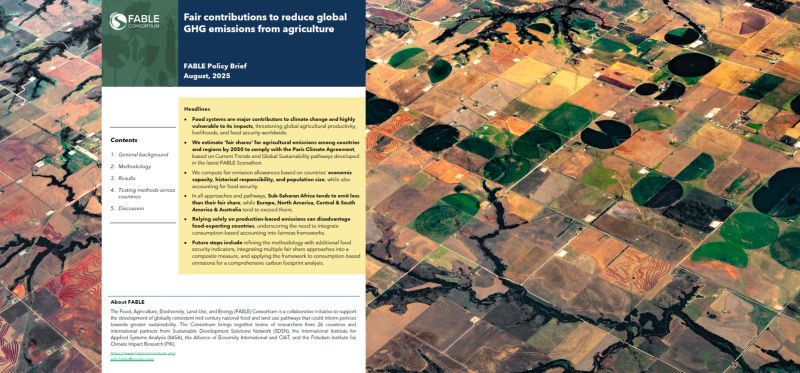Food systems are central to the climate crisis, accounting for approximately one-third of global greenhouse gas emissions while being highly vulnerable to climate impacts. The latest FABLE Policy Brief (August 2025) introduces a framework to assess equitable contributions to agricultural emissions reductions by 2050, grounded in three principles of fairness: ability to pay, historical responsibility, and population size.
Drawing on results from the 2023 FABLE Scenathon—which convened 22 country teams and six regional pathways—the study compares projected agricultural emissions under Current Trends and Global Sustainability scenarios with fair allowances. The findings indicate that while Sub-Saharan Africa meets its fair share under the “ability to pay” principle, wealthier and historically higher-emitting regions, including Europe, North America, and Australia, remain significantly misaligned. The brief further emphasizes that production-based accounting may unfairly penalize food-exporting countries, highlighting the need to integrate consumption-based perspectives.
AE4RIA (Alliance of Excellence for Research and Innovation on Αephoria), as part of the FABLE Consortium, contributed to this global modeling effort by producing the 2023 Scenathon results for Greece. The study underscores the importance of robust, science-driven tools such as the FABLE Calculator in informing equitable and effective policymaking. By embedding fairness into agricultural mitigation pathways, this work provides critical insights for operationalizing the Paris Agreement’s principle of common but differentiated responsibilities in global food and land-use systems.
Read the full brief here

